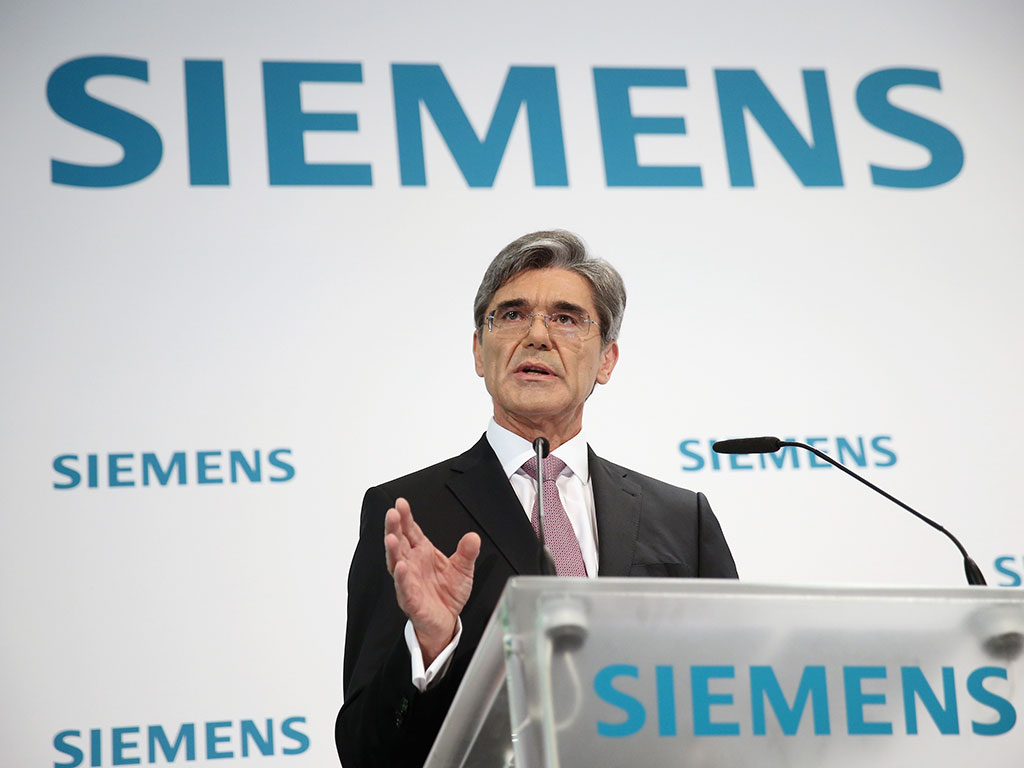Siemens Rolls-Royce deal another strong move by CEO Joe Kaeser
In a billion-dollar deal, Siemens has gained control over Rolls-Royce’s energy operations. This is one of many strategic changes Joe Kaeser has implemented since taking the helm in August last year

Siemens CEO Joe Kaeser speaks to journalists and analysts at the company's 2nd quarter press conference on May 7 in Berlin. The company is performing well under his leadership to-date
Making major management changes, streamlining Siemens‘ structure and forging a billion-dollar deal to expand its energy business, chief executive Joe Kaeser is making his mark on the company he took over in August 2013.
In a £785m ($1.32bn) deal, the German industrial giant will buy most of Rolls-Royce‘s civil energy operations, which builds small electrical turbines. In this respect, the deal is a significant boost to Siemens’ turbine business, which is already one of the largest in the world. The firm’s energy sector alone has around 83,500 employees and made a profit of €1.9bn in 2013.
Siemens said in a statement that it expects the cost reductions and re-organisation will boost productivity by about £1bn a year
The acquisition will contribute 2,400 employees to Siemens’ energy division, which generated 38 percent of total revenue last year. Rolls-Royce will also receive £200m from Siemens in a 25-year licensing agreement.
Rolls-Royce, best known for making jet engines and luxury cars, generated about £1bn in underlying sales from its energy unit in 2013. The businesses being sold to Siemens contributed £871m in revenue and £72m in profit. Still, the British company has struggled to drive profits in the unit; hence a sell-off was planned, which would make the energy unit more competitive.
“This agreement will give the energy business greater opportunities as part of a much larger energy company and allows Rolls-Royce to concentrate on the areas of business where we can add most value,” Rolls-Royce CEO John Rishton said in a statement.
In addition to the deal, Siemens also appointed Lisa Davis to the company’s management board, as she takes over from Michael Süss in leading the group’s US energy businesses.
Kaeser simultaneously announced the de-emphasising of other units such as healthcare in order to streamline the business.
Siemens is planning a public listing of its hearing-aid unit, which employs more than 4,000 people, while the remaining health-care business will be managed separately from Siemens’s other operations and focus on digital products.
Siemens said in a statement that it expects the cost reductions and re-organisation will boost productivity by about £1bn a year starting with the fiscal year that ends in September 2016. The firm hopes that productivity will rise three to five percent a year, boosting profits, which slumped under Kaeser’s predecessor, Peter Loescher.













